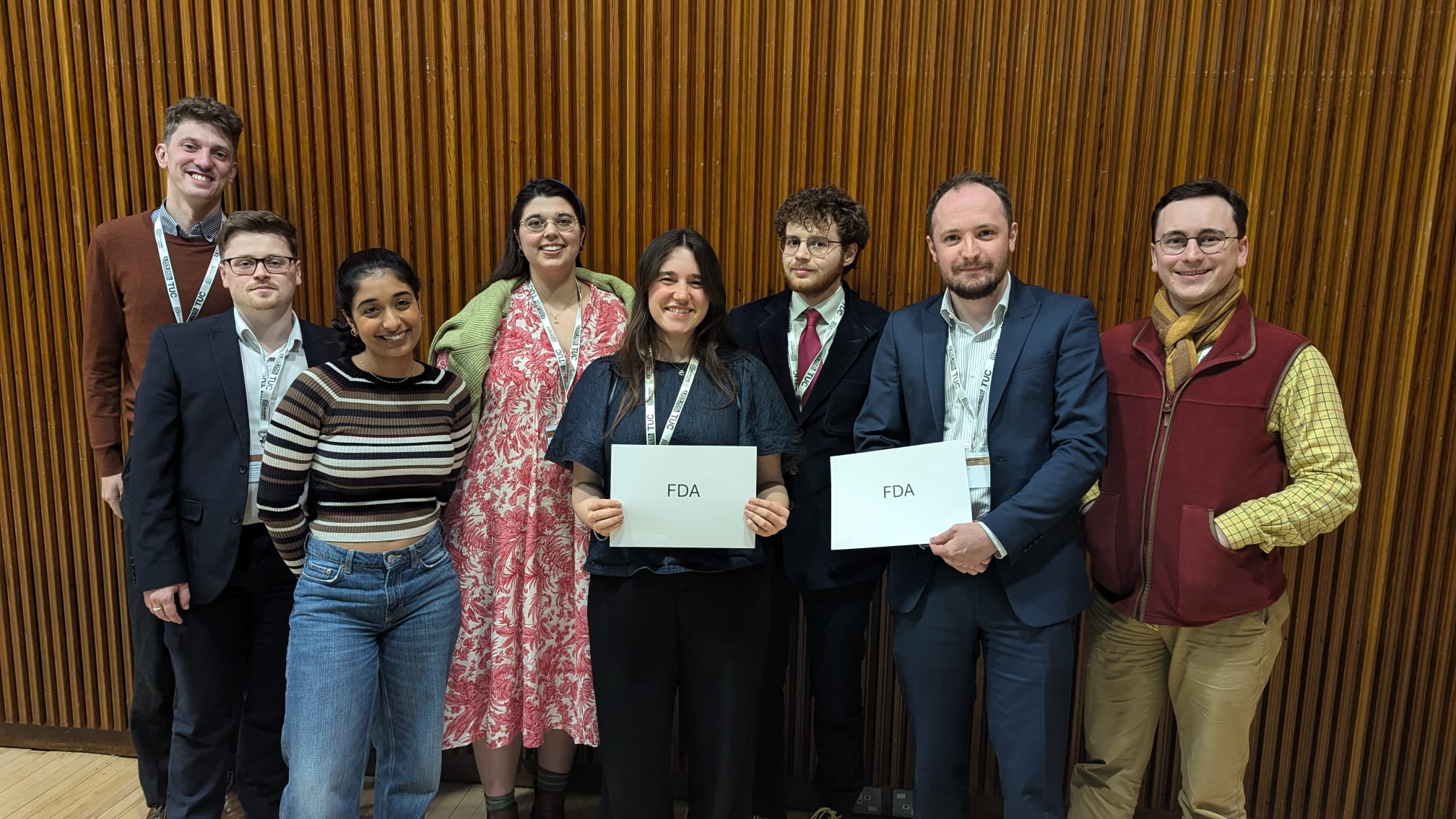Member focus: “I didn’t want anyone else to go through this”

Nigel was originally attracted to a job in the civil service because it would give him “the ability to make a real difference” with “people genuinely wanting to be there and do the right thing” and, after being hired as an SEO in what was the Department for Business, Energy and Industrial Strategy (BEIS), he was “looking forward to a long and successful career in the in the civil service”.
He explains that he has “suffered from depression and anxiety on and off for [his] entire life” and has recently also been diagnosed with combined type ADHD (Attention Deficit Hyperactivity Disorder), which means he meets the definition of disability under the Equality Act 2010.
After a particularly rocky period, in which he changed antidepressants, Nigel explains that it got “pretty bad”, and he became suicidal. This also coincided with his probation being extended. “That was the point where I accessed the employee assistance programme,” he recalls.
“I was told by HR that I needed to apply to DWP for Access to Work. So, I went down that route to be eventually told, once I got to the front of the queue, that as a civil servant I didn’t qualify for Access to Work, because civil servants had been taken out of the Access to Work scheme and I was going to be supported internally instead.”
This meant that Nigel had to start the whole process again by going back to HR. “Eventually, a workplace needs assessment took place,” he explains, which led to a further assessment for neurodivergence as well as a list of reasonable adjustments and some training. It was also recommended that Nigel went for a full autism assessment, but it was deemed that that wasn’t possible within the timescales.
“So, we’d get that sorted after I passed my probation and on the basis that I knew no better, I said, yeah, okay, fine, because I’m going to pass probation… then the wheels came off, basically, and that’s the point at which I was very glad that I had already joined the FDA.”
Through this process, Nigel explains that his “mental health collapsed” and his “relationship with senior colleagues collapsed”. He was supported by FDA reps through a series of probation meetings, and after his third assessment, Nigel was told he was definitely neurodivergent but would need to carry out tests for autism and ADHD. With a clear direction of travel, some reasonable adjustments in place and an increase in productivity as a result, Nigel went into his final probation review feeling somewhat positive, only to have the rug pulled out from beneath his feet and be told “that’s it, you’re done”. He hadn’t passed probation and wouldn’t need to work his notice.
To make matters worse, Nigel was told that it was his choice how he could share that news with colleagues, only to find he had been immediately uninvited from the weekly team meeting, and everybody had been informed before he’d had a chance to see them.
Unfortunately, this was in step with other experiences where his disability wasn’t taken seriously at work. Nigel explains he “had very unhelpful responses from management” when he disclosed his depression, including an incident where somebody had “turned around and said, well, you can’t be depressed. You’re talking, you turned up to work. I know depressed people; they can’t get out of bed”.
Nigel lost an appeal against the decision and FDA National Officer Simon Hardcastle got involved to offer further union support. The department declined to engage in voluntary mediation with ACAS, which left formal arbitration as the only real route forward.
“I was broken at that point,” Nigel explains. “I was just like, I cannot carry on fighting, because I have presented an entirely rational case. I have explained why things have happened. I have apportioned, I think, all the blame that is owed to me, to me. I haven’t spread it around to other people. I have tried to explain the systemic issues, not the individual issues, and offered potential solutions. I just can’t do this anymore.”
At this point, Simon Hardcastle had a frank conversation with Nigel about what he wanted out of the process. Nigel considered his response. “I said, to be honest, I don’t want my job back, but I don’t want anyone else to have to go through what I’ve been through.”
One of the options that was being explored by the FDA was to look at downgrading, which would have seen Nigel move from an SEO to and HEO position. This seemed like it could be a workable solution, as his probation reviews had consistently found him to be operating at HEO level or above across all areas, but “BEIS HR had a policy of no downgrading during probation”. However, this isn’t standard across all civil service HR departments, and civil service HR guidance suggests that downgrading should be considered.
The blanket decision to not even consider downgrading in situations like these “didn’t seem right” to Nigel, so, even though he’d decided he wasn’t coming back to BEIS, he was happy for the FDA to use his case to push for a change in policy.
“Getting it changed in BEIS would make what happened to me not happen to anybody else going forward,” he says. “That’s what we fought on the basis of, and that’s what we got. Whilst there was no admission of liability or wrongdoing, which is pretty standard in these things, there was a change to the wording of the HR policy, which, of course, now that BEIS has been split up, it’s now affected three separate departments rather than just the one.”
As Nigel notes, in February 2023 BEIS was dissolved and its functions split into three new departments, meaning the change in policy is now in place across the Department for Business and Trade, the Department for Energy Security and Net Zero, and the Department for Science, Innovation and Technology.
Alongside the changes to HR policy, Nigel was also awarded a cash settlement, and says he “was very lucky that the FDA decided that they were willing to take it a step further”. Although he’s no longer a civil servant, Nigel says he “will remain for the rest of my natural life an Associate member” following the support received from the FDA. “It is literally all I can do”.
*Surname removed so the member cannot be identified.
Related News
-

FDA attends TUC Young Workers’ 2025
This March, an FDA delegation attended the annual TUC Young Workers’ Conference in Congress House, London.
-

FDA celebrates Women’s History Month 2025 with panel event
To celebrate Women’s History Month and International Women’s Day 2025 the FDA hosted a panel event looking at the history of women in the civil service and within the trade union movement.
-

FDA attends TUC Women’s Conference 2025
A delegation of FDA members attended TUC Women’s Conference 2025, held in Congress House, London, from 5-7 March.